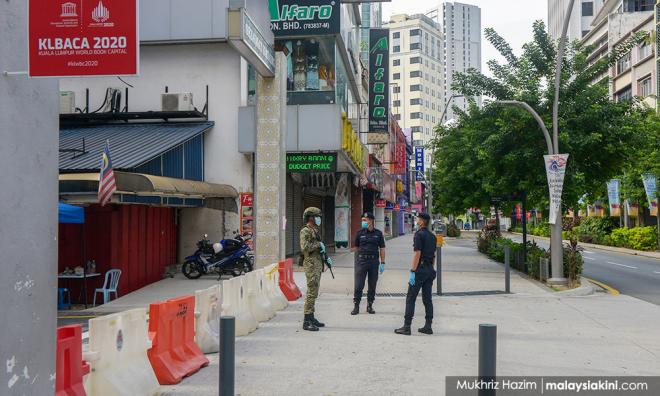
Having been a government doctor for one-third of my working life and the balance two-third in the corporate financial sector to a leadership position, I am probably among the rare few who has the understanding of the impact of Covid-19 on the healthcare system, public safety, and economic impact on business and the nation. We must not forget the psychosocial impact on the population on the prolonged movement control order (MCO).
The decision to end the MCO must not be made in silos. Balance decisions must be made by the government by taking input from multiple agencies on an equitable basis without giving any unfair weightage to input from the Health Ministry (MOH). Everyone is concerned about Covid-19 infection because of the extraordinary growth rate of the infection and the fear factor of death. Data showed us the mortality rate from is far lower than the National Crude Mortality Rate (CMR) 2016 being at 1.37 percent of National CMR 2016. The issue is clearly not about death due to Covid-19 but related to the morbidity and resource utilisation and availability.
MOH's concerns of resource readiness are being addressed by the MCO. It provides the much needed time to allows MOH to strategise, plan and acquire much-needed assets and resources while executing Active Case Detection (ACD). In my opinion, we have met the objectives in terms of preparedness and ACD.
The question now is when do we end the MCO? Do we wait for the whole country to be disease-free for 28 days as being championed by certain health professionals? Is it appropriate to extend the MCO in its current form for the whole country just because there are one or two cases in some states?
As of today, Perlis has no new cases for over 20 days and seven districts in Kedah have been disease-free for 14 days. What scientific basis is used to justify this 28-day rule? Why it can't be 14 days? Why can't a relaxed conditional MCO be applied to these districts where movement is restricted within these districts and surveillance measures and social distancing is still being applied?
The biggest concern of MCO extension now is not about Covid-19 morbidity or mortality but the psychological impact on the people. We must not push the people to the limit until tolerance becomes super thin. We don't want the rate of suicide, divorce and psychiatric cases to go up at the expense of managing the implosion of Covid-19. Imagine the conditions of people living in a cramped low-cost apartment and the impact it has on them.
From MOH press conferences, we know that from the Covid-19 infections, 88 percent have minor illnesses with 10 percent requiring minimal supportive care, and less than two percent under intensive care treatment. We also know that over 600 quarantine facilities have been set up and thousands of beds are now available to address the 10 percent category. Previously the issue of shortage of ventilators was highlighted. Through innovation, now one ventilator can serve seven patients and MOH is receiving so many ventilators. Temporary manpower is being brought back to active service to support the fatigue staff. The army, police and Rela have been mobilised to control movement and border control is being enhanced.
On the economic front, the need to reignite the economy as soon as possible is important. Business is down and this affects the small, medium and large entities. The sustainability of these business entities is limited. If they take too long to be active again, they might never be able to do so. We need to preserve these businesses to avoid unemployment. Higher unemployment will lead to death due to other causes and increasing crime rates. Therefore from a strategy point of view, we have to look at a wider perspective. Areas that have been disease-free must be allowed to return to some degree of normalcy with or without conditions as soon as possible.
Should we follow the extreme examples of other countries or chart our own game-plan that takes into account the local conditions? Riding on World Health Organisation (WHO) and Oxford advice purely in making a decision is not appropriate. We need to implement a tailor-made end-game that suits us.
The end-game basis must be defined as objectively and be made public. This is to ensure that everyone (individual and business) must be able to plan their lives. Certainly, if the end-game is defined as nationwide disease-free for 28 days, then the MCO is unlikely to end soon as having one case in any state in Malaysia means a further extension to the nationwide MCO.
Therefore we need several half time breaks between now and the end-game. Both breaks and the end-game must be clearly defined so that people can feel that there is light at the end of the tunnel. Reality is when the whole world is facing Covid-19 problem, can Malaysia be completely disease-free while the whole world has cases? It will definitely recur again because we live in a very connected economy.
In all likelihood, we will have more MCO in the future as Covid-19 will return. China's experience has proven this. Therefore the government must have a short term and long term strategy in going towards normalcy in our daily life that suits Malaysians beyond the pure medical input from MOH. Businesses and people require much-needed breathing space. - by Dr Mohamed Rafick Khan - Mkini



No comments:
Post a Comment
Note: Only a member of this blog may post a comment.